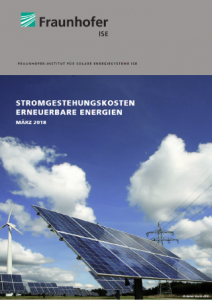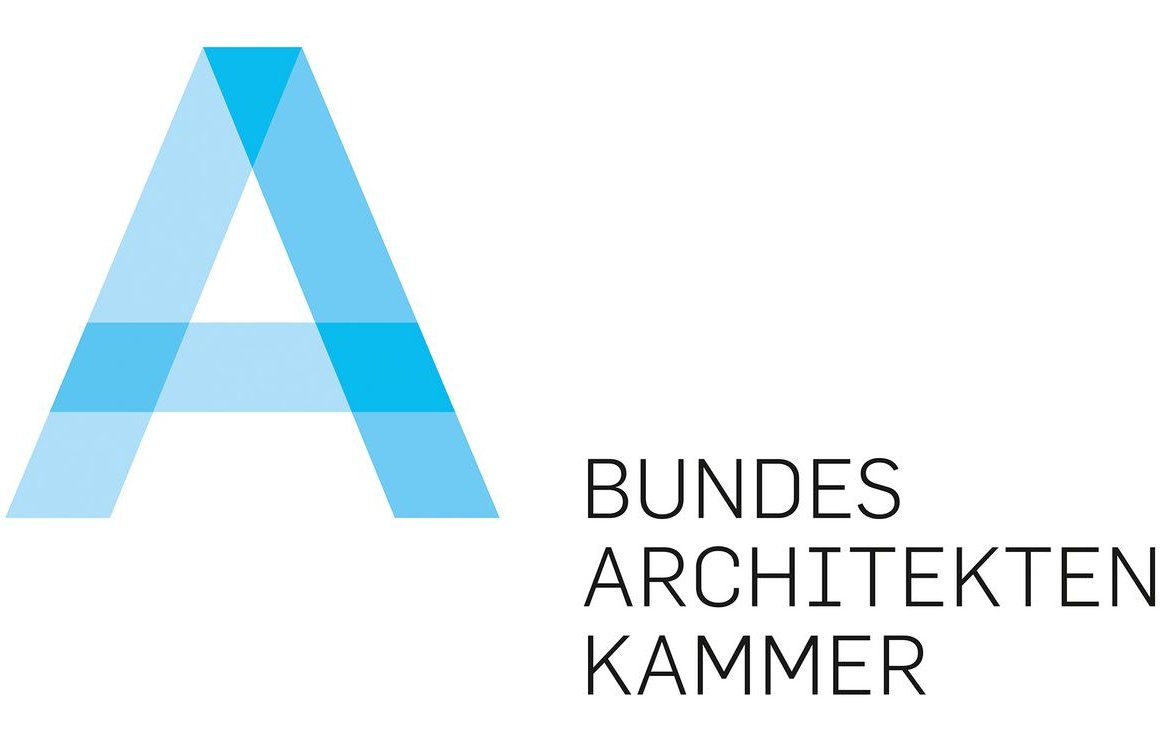2:52 min, 9.11.2014
Project Info: http://sdg21.eu/db/hundertwasserhaus-in-wien
Keywords: Greening / climate adaptation, Movies, Movies < 4 Min, News Blog Austria, Vienna
2:52 min, 9.11.2014
Project Info: http://sdg21.eu/db/hundertwasserhaus-in-wien
 Researchers at the Fraunhofer Institute for Solar Energy Systems ISE presented the fourth edition of their study on the cost price of electricity from renewable sources on March 20, 2018. In it, they analyze current costs and forecast further developments based on technology-specific learning rates and market scenarios up to the year 2035. "The cost forecasts of the previous studies have been confirmed.
Researchers at the Fraunhofer Institute for Solar Energy Systems ISE presented the fourth edition of their study on the cost price of electricity from renewable sources on March 20, 2018. In it, they analyze current costs and forecast further developments based on technology-specific learning rates and market scenarios up to the year 2035. "The cost forecasts of the previous studies have been confirmed.
The cost price of electricity from renewable energies is falling continuously and is no longer an obstacle to CO₂-free electricity generation. Newly constructed photovoltaic plants and onshore wind turbines at favourable locations are already cheaper than fossil-fuel power plants, and this trend will increase significantly by 2035," says project manager Dr Christoph Kost.
The ever-improving competitive position of renewables is leading to new applications and rapidly growing markets that are no longer dependent on subsidies. On the other hand, the full-load hours of conventional power plants continue to decline due to a higher share of renewables, which drives up their costs. In addition, fuel and CO2-certificate prices. "It can be assumed that not necessarily the cheapest conventional form of generation will exist on the market to complement the fluctuating renewables, but the one that can show a high flexibility in terms of start-up and shut-down variability, i.e. preferably power plants based on natural gas", says Dr. Christoph Kost.
Currently, PV systems achieve electricity production costs of between 3.71 and 11.54 € cents/kWh, depending on the system type and global radiation - which in Germany is between 950 and 1,300 kWh/(m²a). The specific system costs are between €600 and €1,400/kWp, depending on the system type.
Keywords:
Construction and operating costs, Renewable, Climate protection, Media, Tenant electricity, New books and studies, PV, PlusEnergy house/settlement
 The Federal Chamber of Architects (BAK) and the Federal Foundation for Building Culture, on behalf of the planning and building industry, today presented their proposal for an "Innovation Programme for Building Culture" to politicians in Berlin.
The Federal Chamber of Architects (BAK) and the Federal Foundation for Building Culture, on behalf of the planning and building industry, today presented their proposal for an "Innovation Programme for Building Culture" to politicians in Berlin.
Anne Katrin Bohle, State Secretary in the Federal Ministry of the Interior, for Construction and Home Affairs, accepted the four-point plan. In it, the authors suggest measures to overcome the Corona crisis that will have a sustainable economic and social impact.
"The structured approach of politics to the Covid19 pandemic, has also shown the opportunities and necessities of infrastructural reconstruction," says Reiner Nagel, Chairman of the Board of the Bundesstiftung Baukultur. "The planning and construction industry can help to create sustainable added value for society in the economic recovery that now lies ahead, for example in the areas of mobility, digitalisation, housing or climate protection. The proposed measures offer the opportunity to create high benefits for sustainable services of general interest and employment in Germany and Europe."
"When developing an innovation programme, measures must be linked to concerns that were also being worked on at full speed before the crisis," emphasises BAK President Barbara Ettinger-Brinckmann. "Every investment offers opportunities for a better quality of life, and the question of added value for our society must be at the centre of our actions. A requirement for quality and sustainability should be attached to every subsidy. In doing so, the public builder must act as a role model and invest specifically in the value of our built environment, both in urban and rural areas."
The "Innovation Programme Building Culture" comprises four focal points:
1. additional resources for innovation and future projects
The Corona Crisis must be an innovation driver for current social challenges. This includes the transformation of cities, for example with a view to climate change, changed working models and new mobility and consumption habits. Consistent support for innovative approaches can move Germany forward in the competition between locations and put both public and private developers back in a position to set an example with their buildings.
2. implement climate protection in buildings
The construction sector can make the greatest contribution to climate protection of all economic sectors: it is one of the most resource-intensive industries, but at the same time offers great potential for savings. What is needed is a programme for sustainable business, climate protection and ongoing ecological change. Boosting existing KfW programmes to promote energy-efficient refurbishment and making holistic approaches to modernisation easier to implement by law can trigger construction activities and at the same time realise climate policy goals.
3. realise existing plans now
Projects that have been planned and prepared should now be implemented quickly. The time limit of the necessary economic stimulus funds leads to corresponding pressure to act. The construction industry can continue to take on tasks from a given employment situation and avoid job losses. Public-sector investments that promote long-term structural change and trigger private investment are particularly sensible at present.
4. create a solid basis for effective economic stimulus measures
Economic policy with the above-mentioned priorities can only be implemented if all actors are put in a position to actually implement the major challenges quickly and appropriately. The accelerated award and approval of existing and prepared projects would in itself have a positive economic effect. The temporary or permanent streamlining of structures and processes should be ensured.
You can find the detailed four-point plan here as a
Download
The innovation programme is supported by:
AHO - Committee of the Associations and Chambers of Engineers and Architects for the Fee Regulations e.V.
BDA - Association of German Architects
BDIA - Association of German Interior Architects e.V.
BDLA - Association of German Landscape Architects e.V.
BDVI- Association of publicly appointed surveyors e.V.
BFB - Bundesverband der Freien Berufe e.V. (Federal Association of Liberal Professions)
DAI - Association of German Architects' and Engineers' Associations
DASL -Deutsche Akademie für Städtebau und Landesplanung e.V. (German Academy for Urban and Regional Planning)
Die Stadtentwickler Bundesverband e.V.
DV - German Association for Housing, Urban and Regional Planning
HDB - German Construction Industry Federation
IfR - Information Circle for Spatial Planning e.V.
VBI - Association of Consulting Engineers e.V.
VDV - Association of German Surveying Engineers e.V.
VDMA Building Technology
VfA - Association of Freelance Architects of Germany e.V.
VPB - Verband Privater Bauherren e.V. (Association of Private Building Owners)
ZBI - Central Federation of Engineering Associations e.V.
ZDB - Zentralverband des Deutschen Baugewerbes e.V. (Central Association of the German Construction Industry)
Source: PM from 26.05.2020 of the BAK
Keywords:
DE-News, Renewable, Climate protection, Mobility, Quarters, Resource efficiency, SDG 2030, Settlements, City, Transition Town, Environmental policy, Housing, Housing policy, Aesthetics / Architecture / Building Culture
 In the interview worth reading Migration and Urban Planning: "We Can Immigration" in the taz of 14.6.2016, Leggewie refers to the urban Chilean designer Alejandro Aravena, who builds half a house for a few thousand US dollars so that the other half can be designed by the residents themselves. Aravena was recently awarded the Pritzker Prize, the Nobel Prize for architects.
In the interview worth reading Migration and Urban Planning: "We Can Immigration" in the taz of 14.6.2016, Leggewie refers to the urban Chilean designer Alejandro Aravena, who builds half a house for a few thousand US dollars so that the other half can be designed by the residents themselves. Aravena was recently awarded the Pritzker Prize, the Nobel Prize for architects.
Keywords:
DE-News, Refugee shelters, Social / Culture, Housing policy
Since 1999, the ABG Frankfurt Holding Around 3,000 flats have been built to the passive house standard for residents from 180 nations, ranging from subsidised flats to condominiums. Thanks to the low ancillary costs and the high level of living comfort, there are hardly any vacancies. "We build more cheaply than the competition, who either don't want Passive House or can't," said Frank Junker in his presentation at the 22nd International Passive House Conference, which took place in Munich on 9 and 10 March 2018 with over 1000 participants.
Like Mr Junker, numerous other speakers at the Passive House Conference showed in their presentations that energy-efficient building and renovation is economical and affordable.
Passive house in social housing
The founder of the Passive House Institute, Prof. Wolfgang Feist, now teaches energy-efficient building at the University of Innsbruck. The university was a co-organiser of the Passive House Conference in Munich. Feist illuminated the aspect of energy efficiency with a view to social housing. Particularly in the components of windows and ventilation, he said, it has become possible in recent years to choose much more efficient solutions without significantly higher costs. "If you do not realise a residential building as a passive house today, your tenants will pay more than if you provide them with flats in proper condition," Feist said.
Further information, such as the programme and photos, can be found at:
https://passivhaustagung.de/de
Source: PM of the Passive House Institute from 22.3.2018
Keywords:
Construction and operating costs, DE-News, News Blog Hesse, Thermal insulation, Ecology, Economics